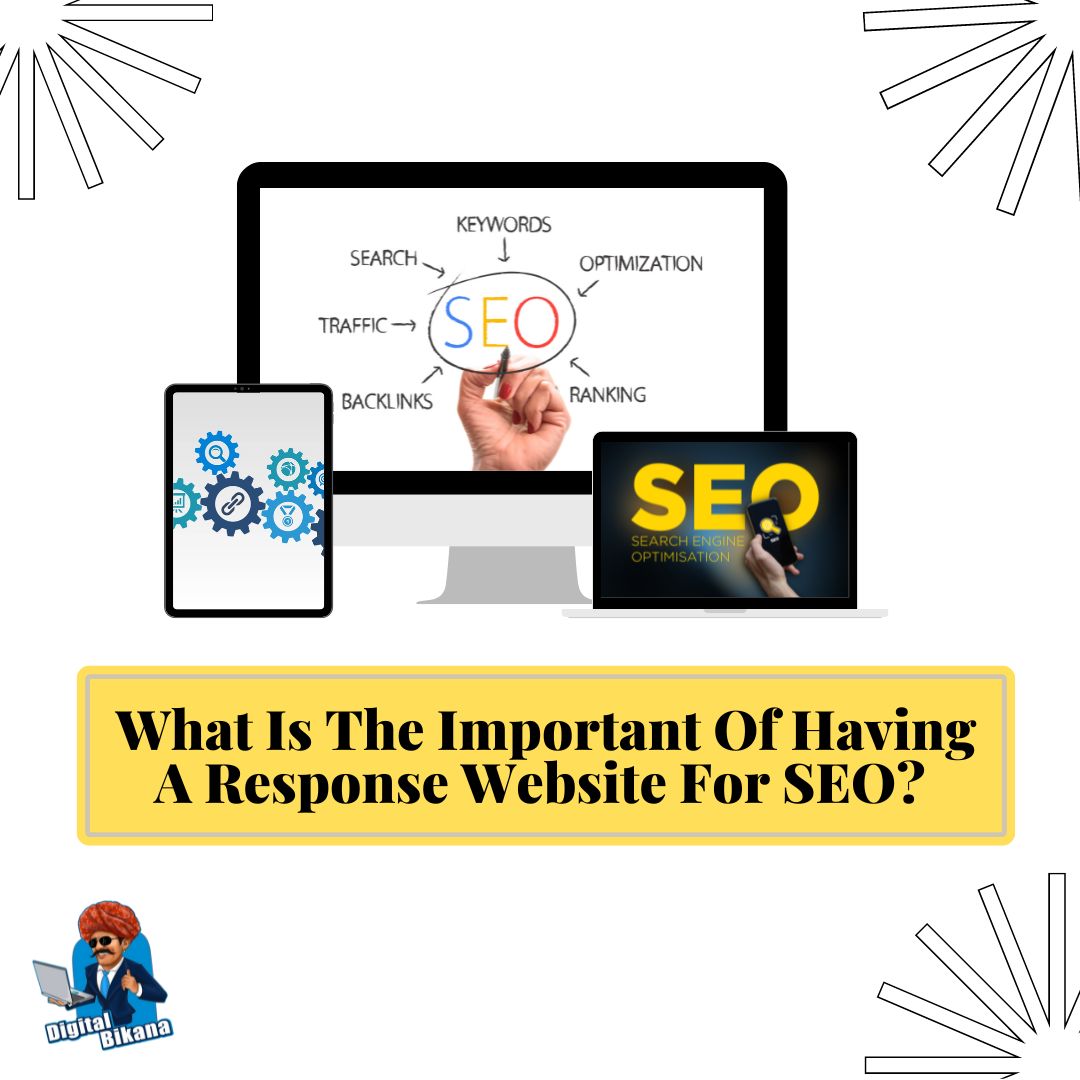Importance of having a Responsive Website for SEO
In this article we are going to talk about What is the importance of having a responsive website for SEO? In today’s digital landscape, having a responsive website is crucial for both user experience and search engine optimization (SEO). With the increasing use of mobile devices, search engines have placed significant emphasis on mobile-friendly websites.
What is the Importance of having a Responsive Website for SEO?
In this article, we will delve into the importance of having a responsive website for SEO and how it impacts your online presence.
1. Enhanced User Experience
A responsive website provides an optimal user experience across various devices and screen sizes. It automatically adjusts its layout and design elements to fit the screen of the device being used, whether it’s a desktop computer, tablet, or smartphone. By offering a consistent and user-friendly experience, a responsive website ensures that visitors can easily navigate, read, and interact with your content. Improved user experience leads to longer visit durations, lower bounce rates, and increased engagement, all of which positively impact your SEO efforts.

2. Mobile-First Indexing
Search engines, including Google, now prioritize mobile-first indexing. This means that the mobile version of your website is considered the primary source for indexing and ranking purposes. If your website is not mobile-friendly, it may be excluded from mobile search results, leading to a significant loss of organic traffic. A responsive website makes your content easily accessible and readable on mobile devices, increasing the likelihood of ranking well in mobile search results.
3. Improved Page Loading Speed
Fast page loading speed is crucial for both user experience and SEO. Responsive websites are designed to optimize page loading times for different devices. Mobile users, in particular, expect fast-loading pages, and search engines consider page speed as a ranking factor. A responsive design ensures that your website’s performance is optimized across all devices, leading to faster page loading times and better SEO rankings.
4. Consolidated SEO Efforts
Maintaining separate desktop and mobile websites requires separate SEO strategies and resources. With a responsive website, you can consolidate your SEO efforts into a single website, saving time and resources. All inbound links, social signals, and content optimization efforts will directly benefit your website’s overall SEO performance, regardless of the device used by your visitors. A unified SEO strategy helps to create a stronger online presence and improves your website’s visibility in search engine results.
Read Also: What is the Role of Social Signals in SEO?
5. Lower Bounce Rates
A responsive website reduces the likelihood of high bounce rates, which occur when visitors quickly leave your website after viewing only one page. Non-responsive websites that are not optimized for mobile devices often have higher bounce rates as users struggle with navigation and readability issues. By providing a seamless user experience across devices, a responsive design encourages visitors to stay longer, explore multiple pages, and engage with your content. Lower bounce rates indicate to search engines that your website offers valuable and relevant information, leading to improved SEO rankings.
6. Mobile Search and Local SEO
Mobile devices play a significant role in local search, with users frequently using their smartphones to find local businesses and services. Search engines prioritize local results for mobile users based on factors such as proximity and relevance. A responsive website ensures that your business information and location details are easily accessible to mobile users, improving your chances of appearing in local search results. This is crucial for businesses targeting local customers and reinforces the importance of a responsive website for local SEO efforts.
7. Social Sharing and Link Building
In the era of social media, a responsive website allows for seamless sharing of your content across different devices. When users access your website on their mobile devices and find it user-friendly, they are more likely to share your content on social media platforms, which can lead to increased visibility, engagement, and potential backlinks. Social signals, such as likes, shares, and comments, indirectly contribute to improved search engine rankings, making a responsive website an important asset for your overall SEO strategy.

8. Future-Proofing Your Website
As technology advances, new devices with various screen sizes and resolutions will continue to emerge. Having a responsive website helps future-proof your online presence, making sure your website stays accessible and visually appealing on new devices that come out. This adaptability reduces the need for constant redesigning and redeveloping of your website, saving time and resources in the long run.
You can also checkout this digital marketing institute to learn digital marketing course by enrolling in our course Or Contact Digital Bikana on +91-8949483728
Conclusion:
Having a responsive website is no longer an option but a necessity in the realm of SEO. It not only enhances user experience but also aligns with search engines’ emphasis on mobile-friendly websites. A responsive design ensures optimal performance, improved page loading speed, and a consistent user experience across devices. By investing in a responsive website, you provide visitors with a seamless browsing experience, reduce bounce rates, and increase engagement—factors that positively impact your SEO rankings. Embrace the importance of responsiveness to stay ahead in the competitive digital landscape and maximize your online visibility. So, Now I Hope we have understood about What is the Importance of having a Responsive Website for SEO?

